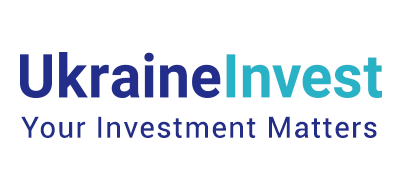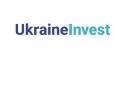UKRAINEINVEST ISSUES THE BUSINESS WEEK, A FREE ON-LINE PUBLICATION CONTAINING A WEEKLY SUMMARY OF IMPORTANT BUSINESS NEWS IN UKRAINE, FOR 13 APRIL, 2018.

Nestle to invest $27 million in the modernization and expansion of its Mivina factory
Global food and beverage giant Nestlé has concluded an investment package valued at $27 million with the Kharkiv regional administration. Last week the Nestlé CEO for Ukraine and Moldova, Ansgar Bornemann, and head of the Kharkiv Oblast State Administration, Yulia Svitlychna, finalized the deal, UBJ reports. Over the next three years Nestlé will fund the modernization of its Mivina factory, where a variety of snacks and food products are produced. During the last year, it produced 34,000 tons of food products, 40% of which was exported to 17 countries around the world. By expanding its production capacity in the region, Nestlé is planning to boost sales, create jobs, and improve conditions, including pay, for its current local work force of 1,200. Nestlé, which has invested more than $312 million in its Ukrainian operations since 1994, values its current sales volume in the country at $7 billion. Apart from the Mivina factory, it operates plants in the Lviv and Volyn regions.
Agriculture
- Ukraine’s sugar exports up 15 percent in March by 47,200 metric tons according to the press service of Ukraine’s National Association of Sugar Producers, with post-Soviet and African countries being major importers.
- 474 new investment projects worth about $1.6bn are being implemented in Ukraine’s agro-industrial sector, according to the Ministry of Agrarian Policy and Food. They are expected to create 16,000 new jobs. The highest investment activity is the Vinnytsia, Poltava, Cherkassy and Sumy regions, while the highest concentration of new projects are in Poltava (69), Lviv (64), Vinnytsia (48), Chernivtsy (43) and Cherkassy (41).
Automotive
- Ukraine imports 1,744 electric vehicles between January and March 2018 compared with 550 electric in the first quarter of last year, the press service of the State Fiscal Service reports. A total of 2,700 passenger electric cars and other vehicles equipped with electric motors were imported into Ukraine in 2017. Imports of electric cars to Ukraine are exempted from VAT and excise duty in 2018.
Aviation
- The Irish low-cost air carrier Ryanair will begin flying from Ukraine two months earlier than previously announced, with additional flights from Kyiv to Berlin beginning in September 2018. Berlin is the 11th direction from Kyiv, to which Ryanair has opened ticket sales. Meanwhile, the current leading low cost carrier in Ukraine, Wizz Air, has renewed operations from Kharkiv International Airport to Dortmund. It will open two other routes from Kharkiv to Katowice in June and to Vienna in November.
- Friction between Ukraine’s largest airline, Ukraine International Airlines (UIA) and Ryanair continues. UIA, which is partowned by oligarch Igor Kolomoisky, has resisted the entry of the Irish low-cost carrier into the market. On 6 April UIA’s CEO Yurii Miroshnikov accused Ryanair of selling tickets at Kyiv’s Boryspil airport without prior permission and told Reuters that UIA may take legal action. Ryanair, which enjoys the support of Infrastructure Minister Volodymyr Omelian and, evidently, the Ukrainian president, dismissed what it described as “hysterical utterances from the high fares UIA”as“just another example of their desire to block competition rather than giving Ukrainian customers the low fares they really want.”
- Wizz Air is doubling the number of its flights from Lviv to Berlin from 18 June 2018. In addition to the existing flights on Wednesdays and Sundays, the current leading low cost carrier in Ukraine, is introducing ones on Mondays and Fridays. Wizz Air also flies from Lviv to, among other European cities, Dortmund in Germany. 57% rise in passenger flow at Kyiv’s Ihor Sikorsky [formerly Zhuliany] InternationalAirport (up to 155.7 thousand) in March 2018 compared with the same period last year, its press service reports. The number of flights in March also rose by 29.8% over the year, of which, 1,611 were international flights and 364 domestic. The main international directions were Dubai, Minsk, Ankara, Warsaw, Budapest, Memmingen, and Rome and domestic ones, Odesa, Zaporizhzhia and Lviv.
Banking & Finance
- Due to decentralization reform, local budgets now account for more than half of Ukraine’s consolidated state budget President Poroshenko said on 5 April. Because financial resources have been transferred to local communities, they are empowered to demand that local government agencies implement real changes. The total revenue of Ukrainian local budgets grew almost three fold from 2014 to 2017, and are expected to rise by a further 20% in 2018.
- Nova Poshta to receive a loan of EUR 9.5 million from the European Bank for Reconstruction and Development (EBRD) for the construction of a parcel-sorting terminal in the city of Khmelnytsky, the first of seven modern automated parcelsorting terminals it plans to build across Ukraine. Nova Poshta is Ukraine’s leading firm engaged in express delivery.
- The World Bank has retained its forecast for Ukraine’s GDP growth in 2018 at 3.5%, Lead Economist and Program Leader covering Belarus, Moldova and Ukraine Faruk Khan said in Kyiv on 10 April. «Economic growth is projected at 3.5% in 2018 if pending reforms in anticorruption, land markets, state-owned banks, and privatization can be advanced in the next few months. This would provide an important signal to investors. If reforms are delayed, growth could drop below current levels in an uncertain macroeconomic environment as financing risks rapidly increase,» the World Bank elaborated in its press release of 9 April.
Business
- Prime Minister Volodymyr Groysman supports strengthening the adopted law on protecting businesses from the actions of law enforcement officers (the so-called «stop masks-show» law). «The law is designed to restore order in relations between the law enforcement system and business,” the government’s press service quotes him as saying on 7 April.
- Ukraine invited to participate in a G7 Foreign Ministers meeting for the first time. It will be held in Toronto on 22 April.
- Innovation to be the topic of the 2018 Kyiv Investment Forum to be held later in the year.
- Vice Prime Minister for European and Euro-Atlantic Integration of Ukraine Ivanna Klympush-Tsyntsadze on current challenges. In an interview for the Obozrevatel media outlet, she said that Kyiv is in constant dialogue with the Lithuanian initiators of the Marshall Plan for Ukraine in order to combine it with the EU’s plans to support the Eastern Partnership countries. She described it as a very ambitious task that needs serious consideration not only from the point of view of the proposal, but also from the point of view of Ukraine’s ability to implement it. The official acknowledged that she does not see any prospects for visa liberalization with Canada or the United Kingdom in the near future.
Energy
- The Nord Stream-2 pipeline continues to divide Europe. According to the Russia’s Sputnik International, Nord Stream-2 is a joint project run by Russia’s Gazprom together with France’s Engie, Austria’s OMV AG, Anglo-Dutch Royal Dutch Shell, and Germany’s Uniper and Wintershall. It is supposed to deliver 55 billion cubic meters of Russian natural gas per year to the EU. During the last three weeks, Germany and Finland have formally backed the Nord Stream-2 project while Ukraine continues to lead the opposition to it. Ukraine’s parliament and president have just warned that the scheme is a serious danger that will ensure Russia’s monopoly on gas supplies, threatens Ukraine’s pro-European interests, and is nothing less, as President Poroshenko told Handelsblatt on 9 April, than a “purely political project funded by Russia”. Poland, Lithuania, Latvia, Estonia, Moldova and Denmark also oppose the project, the European Commission has voiced it concerns, and Washington has threatened to subject EU firms to sanctions over it.
- The industry and energy committee in the European Parliament recently voted “in favour of bringing the Nord Stream-2 under European law, according to the EU Observer, therebyre-establishing order, stability and predictability on the European energy market”, but the legal services – representing EU member states – opposed the EU executive’s legislative proposal. Since then, the European Commission has signaled it will not support the Nord Stream-2 project because it does not contribute to “diversifying gas supplies to Europe”. On 6 April, the head of energy for the European Commission Dominique Ristori stated in Kyiv that the pipeline would violate the principles of transparency and free access of European consumers to energy sources.
Infrastructure
- Road works to improve the condition of the Kyiv-Odesa and Kyiv-Chop motorways should be carried out by early May 2018, Infrastructure minister Omelian told Radio Svoboda on 9 April. With the necessary financing, major road works could revamp the country’s road network, but at a price of around EUR 10 million per kilometer of motorway. For his part, Prime Minister V. Groysman is convinced that all major Ukrainian roads will be restored in 3-5 years, the government web portal reported. The PM said that considerable attention would also be paid to local roads. «UAH 10 billion will be transferred from the Road Fund... Far more roads are being constructed in amalgamated communities and cities now.»
Science & IT
- Ukraine’s largest IT association, the Lviv IT Cluster, is constructing an Innovation District Park, known as IT City, UBJ reports. With $150 million invested and a spacious 10-hectare building site, IT City will offer workspace for dozens of tech companies and thousands of workers. It should also boost Lviv’s growing tech ecosystem. “IT and tourism have for a while now been identified as by far the two biggest drivers of Lviv’s growing economy,” says Stepan Veselovskyi, CEO of the Cluster. Around 20,000 IT workers, drawn from all over Ukraine, now work in the city. Earning salaries denominated in dollars, this IT workforce generates another 72,000 jobs in Lviv. The annual IT Arena event—a huge conference with speakers and live music and events—is fast becoming the biggest tech event in Eastern Europe.” In addition to office space for 4,000 people, IT City will have a new Catholic University campus, supermarkets, hotels, and hundreds of apartments.


